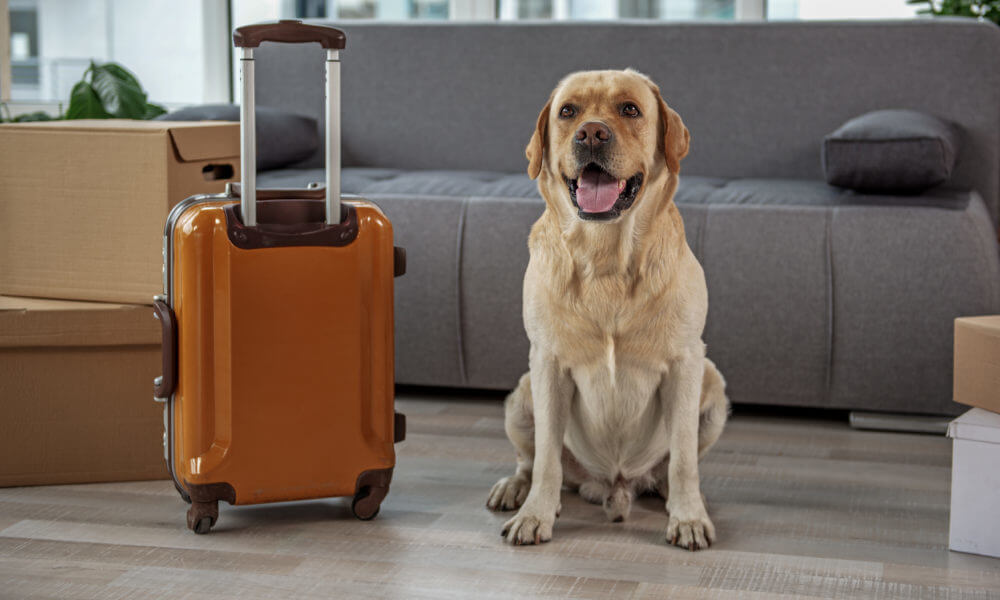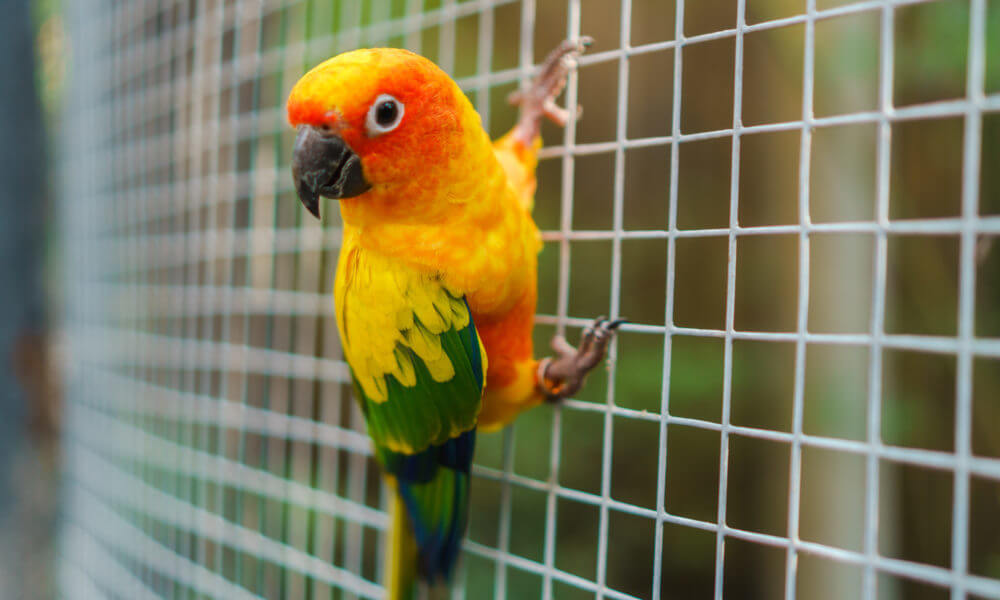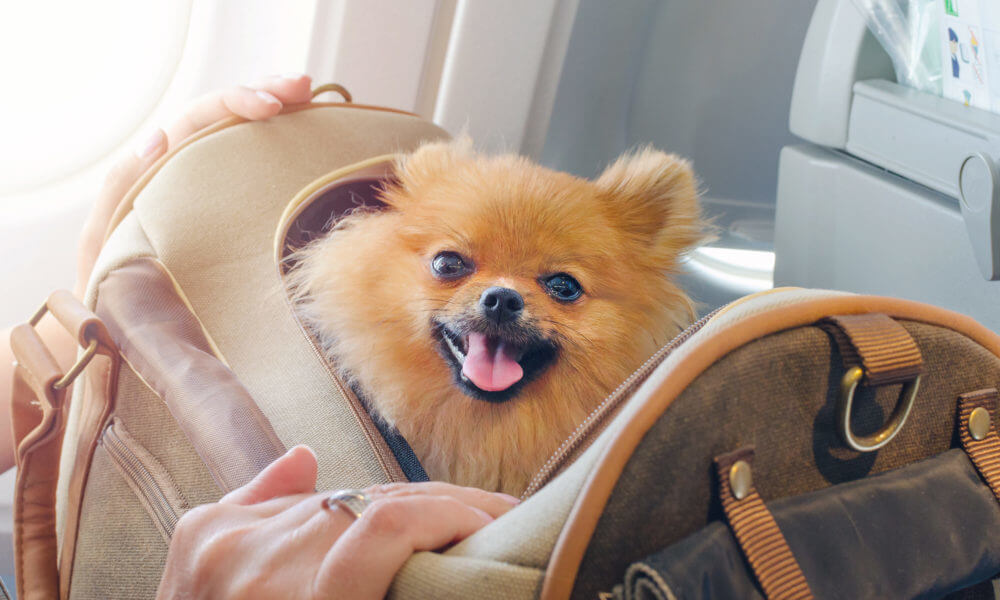If you are wondering if moving with pets is hard, we’ll tell you that it is not easy, but it is possible. If you are organized and prepare your furry friends on time, there will be nothing to worry about. But, before you start packing your furry friend’s favorite toys, read the following tips; it will surely help.

Things to Do Before Moving With Pets to Your New Home
Having a pet means having unconditional love and a reliable friend. Whether it is a dog, cat, guinea pig, or a fish, when you first bring it to your home, it becomes a family member. When you decide to relocate, you should not forget about your furry friend, so make sure that your moving to-do list includes preparing them.
Most people have cats or dogs. Even though these animals react similarly to the changes within your house or apartment, they will have different reactions when it comes to relocation. Unlike dogs, cats are more focused on their surroundings; therefore, you can expect a change in your cat’s behavior once you relocate to a new place. If you want your relocation to go as smoothly as possible, here are the most suitable moving tips regarding this matter.
If Your Pet Is a Cat, Moving Can Be a Bit Tricky
When relocating with a cat, you will need a proper carrier. We suppose you already have one and use it when you have to take your cat to the vet. If not, you should get a carrier as soon as possible, so that your cat gets used to it and doesn’t feel scared.
It is essential to have enough time to prepare your fluffy friend for relocation. A few simple steps will help you in this process. Consider putting their favorite toy and a blanket in the carrier and praise them when they go inside. They might feel scared at first, but once they realize that you are not going anywhere, they will calm down.
Remember, your cat should have a hard-sided carrier, and you should ensure that it has enough space on each side for proper ventilation. When the relocation day comes, cover the carrier with a light sheet and leave it for the first few hours of the trip. Your fluffy friend will be scared at first, but once they calm down and you’re sure that they are relaxed, take off the sheet.
Whether You Are Relocating on Summer or Winter, Prepare Your Dog for Upcoming Events
On the other hand, dogs may be easier to travel with. However, like cats, dogs mostly relate a car drive with going to the vet. So, if you want to prepare your furry friend for relocation, we suggest that you start taking it to short rides every day, a few days before relocation. That way, you will help them associate car rides with, let’s say, going to a park.
When relocation day comes, you should restrain your dog. You may not like it, but it is for everyone’s safety. You should use safety harnesses suitable to attach to any seat belt, ensuring a safe and comfortable ride. You can also use safety gates, made of metal, and give your furry friend some mobility in a restricted area.

Make a List of Pet Regulations
Before relocating, check the rules and regulations because these requirements may differ in your future location, especially if you are relocating to another state. In general, you need to bring certificates that show that your fluffy friend had proper vaccines and inspections. Make sure to have all the paperwork in one place because documents are some of the most commonly forgotten things to pack. Here are some of the most important rules you should check.
List of Regulation for Relocating With Your Furry Friends
State Rules
Each state has its own rules and laws for owners. You should find your state’s Department of Agriculture or Veterinary Office – The American Kennel Club, The International Cat Association, and The American Federation of Aviculture are excellent resources when looking for more information.
Apartments and Condos
Some communities don’t allow dogs and cats, not to mention exotic pets like snakes, tarantulas, or iguanas. So, before you pick your future home, make sure to know the policies for your furry or scaly friends. Also, if you are thinking about the cheapest way to move out of state, you should be prepared for some potential costs regarding your pets.
Health Certificates
Find out what the state’s requirements are regarding health certificates. Most states require health certificates for your furry friend, including all kinds of animals.
Rabies Tags
Most countries require rabies tags for cats, dogs, and some exotic animals.
Permits
If you have an exotic animal, you’ll probably have to purchase a permit before your scaly friend enters another state.
Local Ordinances
Go to a city clerk’s office in your future town and find out about local ordinances. You can look for any licensing rules, leash laws, limits on the number of pets per household, and some zoning laws that might prohibit specific animals in residential areas.

Schedule a Visit to the Veterinarian
Before you move out of your current town, make sure to schedule an appointment with the veterinarian. Inform your vet about your relocation so you can take any medications, prescriptions, and records with you. Also, you may ask your vet about recommendations. Maybe they can recommend a vet in your future town.

Pack Their Stuff Separately
Your furry friend, like every other family member, needs a bag with its stuff. Therefore, don’t forget to pack all its belongings in one separate bag and keep it close while and after relocating. The bag should contain food, as well as a gallon of water and some treats.
If you are relocating with a cat, it can travel for eight to ten hours without using a litter box, but just in case, you should bring a disposable litter box for overnight stops or emergencies. Don’t forget to bring some extra towels and a first-aid kit. You should also put temporary ID tags on the collar with your soon-to-be address and cell phone number.
Once you arrive at your other home, try to create a familiar atmosphere for your furry companion. You will achieve that by placing the objects your furry friend recognizes in similar locations as in a previous home.
For example, if your cat’s litter box was in the kitchen, put it in the new kitchen. If your dog is used to having the food twice a day, you should not change that in another home. Put their beds and toys at the same location as in the previous house or apartment, and so on. However, be prepared for a period of accommodation. Maybe it will take a couple of weeks for your furry companion to feel comfortable in a new home.

When You Need to Travel With Birds
Some people prefer birds more than cats or dogs, and that’s alright. If you know someone who has a bird, you probably know that many bird owners proudly announce that their feather friends have never flown off their shoulders.
Most of them are confident that it will be the same during the move. Well, experience shows that they often fly the coop (no pun intended) on relocation day. If you are a bird owner, put your feathered friend in a cage and keep yourself from worrying about it during the move.
Yes, we know it sounds cruel, but that is the best solution. Birds don’t know much about relocation so they might fly away. To avoid that, take the necessary safety measures. Once you arrive at your new home, you will be happy that they are still with you.

Keep Them Safe During the Transportation
During the relocation, the safety of your furry or scaly friend should be one of your priorities. Some devices that will help you find it if it gets lost, papers that are your helpers in case your animal gets hurt, and tools to keep with you while relocating.
Items That Will Keep Your Furry Companion Safe
Collars
You should have collars on your pets every time they travel, whether in a plane or a car. Also, you might want to get a harness if your furry friend gets fidgety.
Microchips
If your pet gets loose, but it has a chip, you will be contacted once it is found because it is entered into the recovery system. If you have purchased your dog from a store, shelter, or breeder, it most likely already has a microchip.
ID Tags
If you have an animal that can wear a collar, you should put one on and attach an ID tag. If you have birds, you can set the tag on a leg band. Information that should be on the tag is your pet’s name, your name, the destination address, and phone number.
Pictures
When you arrive in your new neighborhood, take a photo of your furry friend and show it to your new neighbors, so they know what it looks like if it gets lost.
Leashes
If you have to wait for a fence to be built, to keep your dog in your new yard, you should have a leash and a chain. In case they break the leash, you should have a spare one.
Pet Carriers
When traveling by plane, any pet in the cabin must be in a carrier. Some pets are less stressed when in a carrier than on the loose when in a car.
Records
You should get your pet’s records from your veterinarian so that your new veterinarian can take good care of your furry or scaly friend.

Choose the Best Moving Service for Relocating Your Pets
When organizing a move, one of the essential moving hacks should be to find the right company, not only for your furry companion but for all your belongings. If you want them to be safely transported, you should be careful and avoid moving scams by searching for reliable and professional movers.
When you contact the movers, see what services they offer. Whether you are planning to relocate to another town or another state, a professional company can provide you with both local moving and long-distance moving services.





